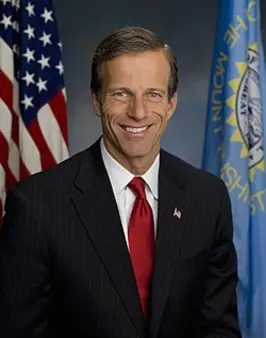Farm bankruptcies in the United States have surged by an alarming 95%, while South Dakota’s resilient farmers face an equally challenging atmosphere due to ongoing international trade tensions with China. This situation has left family-owned farms struggling to sustain their operations, particularly affected by China’s cessation of U.S. soybean imports. Compounding these issues is the absence of a Farm Bill, amplifying concerns for sustainable agricultural policy and support.
This year, the National Farmers Union hosted its annual Fly-In event from September 8th to 10th, 2025, in Washington, D.C. More than 30 family farmers and ranchers from South Dakota, representing the South Dakota Farmers Union, traveled to the nation’s capital to voice their concerns directly to policymakers, further highlighting the unique challenges faced by the farming community in the Mount Rushmore State.
Leading the charge for South Dakota was Lance Perrion, a dedicated third-generation corn and soybean farmer from Ipswich. With his family’s future in mind, Perrion emphasized the grim realities of current soybean prices, averaging 25% below breakeven, driven largely by the trade war. “The current policy is not working. There is consolidation at every level of industry, and the trade war is crippling our markets,” Perrion expressed, reflecting the sentiment shared by many of his peers.
Rob Larew, National Farmers Union President, set the stage with his welcoming address at the U.S. Department of Agriculture by stressing the importance of family, community, and a unified voice in advocating for change. His message resonated strongly with attendees from South Dakota, a state where close-knit communities and familial ties are deeply valued.

John Thune
Throughout the Fly-In, South Dakota farmers had the opportunity to meet with key policymakers, including U.S. Senator John Thune. Thune, known for his long-standing support of agriculture, shared his views with the farmers: “The situation is dire… I am a long-term skeptic of tariffs because we are an ag state and we depend on export markets. So, tariffs are risky business.”
During discussions, anti-trust issues within the meatpacking industry also came to the forefront. The dominance of the so-called ‘big four’ meatpackers has left many ranchers feeling disadvantaged. South Dakota ranchers met with Department of Justice staff to address these concerns, advocating for fairer competition and better market practices. “It was pretty enlightening to hear that they’re moving forward on the investigation,” shared Oren Lesmeister, a rancher from Parade, commenting on the Justice Department’s efforts.
The absence of a current Farm Bill further exacerbates the uncertainty in the farming community. Rob Lee, a representative from De Smet on the National Farmers Union Board of Directors, expressed his apprehension. “From my perspective as a producer, my optimism wanes every year that goes by without a Farm Bill.”
A glimmer of hope emerged with discussions around implementing Mandatory Country of Origin Labeling (MCOOL) in the next Farm Bill. This policy, strongly advocated by Ipswich cow/calf producer Casey Duvall, aims to promote American beef, giving consumers a clear choice in supporting home-grown products.
The Right to Repair debate, a critical issue concerning the autonomy of farmers over their machinery, also found a platform at the Fly-In. Buster Reis, a fifth-generation rancher from Reliance, passionately advocated for changes: “If we had been able to [repair our equipment] ourselves, it would have taken no time at all, and we would not have wasted time ahead of a storm that we did not have to waste.”
These poignant narratives from the heartland of South Dakota illustrate the dire challenges small farmers face amid national and global economic tensions. Doug Sombke, President of the South Dakota Farmers Union, aptly concluded, “Policymakers need to hear from us about how the decisions they make impact us. Without our personal stories, they have no idea what is happening on the farm or ranch.”
As these South Dakota farmers return home, equipped with shared experiences and renewed resolve, they remain committed to ensuring their voices carry forward, hopeful that their messages will shape a more stable and supportive future for American agriculture. For more updates and detailed insights into the ongoing advocacy work, visit the South Dakota Farmers Union.